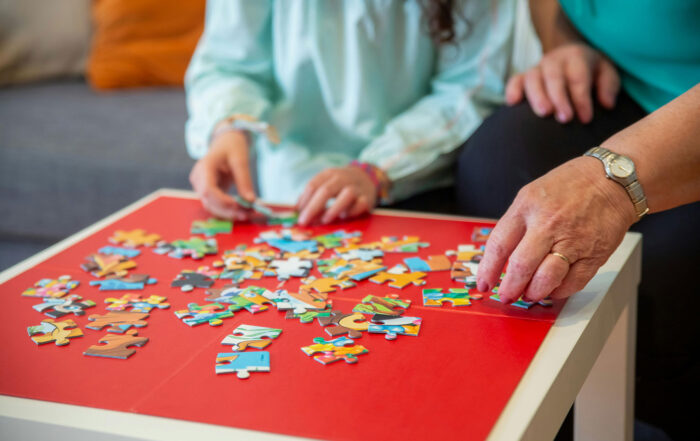
Published by The Center on the Developing Child, Harvard University
The science of child development shows that the foundation for sound mental health is built early in life, as early experiences—which include children’s relationships with parents, caregivers, relatives, teachers, and peers—shape the architecture of the developing brain. Disruptions in this developmental process can impair a child’s capacities for learning and relating to others, with lifelong implications. For society, many costly problems, ranging from the failure to complete high school to incarceration to homelessness, could be dramatically reduced if attention were paid to improving children’s environments of relationships and experiences early in life.
Share This Post!
Four Ways Teachers Can Show They Care
By VICKI ZAKRZEWSKI If I asked you to tell me what you remembered most about your favorite teacher growing up, I bet you wouldn’t say much about the subject matter. Instead, I’d expect [...]
CDC: Childhood Trauma Tied to Poor Health
By Gaby Galvin PEOPLE WHO EXPERIENCED trauma as children are more likely to suffer severe health consequences later in life, a new federal analysis shows. Adverse childhood experiences, or ACEs, refer to potentially [...]
School exclusions are on the up – but training teachers in trauma could help
By The Conversation After years of decline, school exclusions are on the rise again, according to official figures for the Department for Education. The Timpson review, carried out by former children’s minister [...]
How Trauma Affects Kids in School
By Caroline Miller We tend to think of trauma as the result of a frightening and upsetting event. But many children experience trauma through ongoing exposure, throughout their early development, to [...]
10 Things About Childhood Trauma Every Teacher Needs to Know
By Starr Commonwealth With grief, sadness is obvious. With trauma, the symptoms can go largely unrecognized because it shows up looking like other problems: frustration; acting out; difficulty concentrating, following directions, or [...]
Music Therapy Addresses Trauma – Careers That Change Lives
By Barbra Weidlein Trauma settings Music therapists have been called upon to support the recovery of individuals and communities following horrific events as well as natural disasters. Settings have included New [...]







